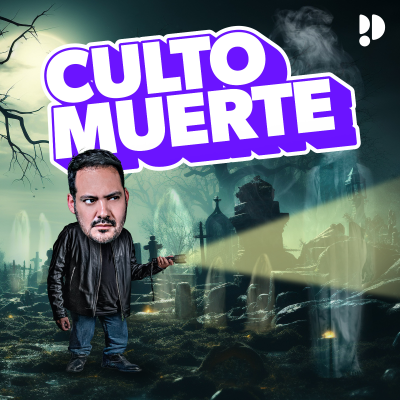
Battling with Business
English
Business
Limited Offer
2 months for 19 kr.
Then 99 kr. / monthCancel anytime.
- 20 hours of audiobooks / month
- Podcasts only on Podimo
- All free podcasts
About Battling with Business
In this podcast, Gareth Tennant, a former Royal Marines Officer, and Chris Kitchener, a veteran of the software development world, explore ideas and concepts around teams and teamwork, leaders and leadership, and all things in between. It’s a discussion between a former military commander and a business manager, comparing and contrasting their experiences as they attempt to work out what makes teams, leaders, and businesses tick.
All episodes
150 episodesEpisode 161 - Pressure Is the Point : What UK Special Forces Can Teach Leaders About Performance with Simon Jeffries
In this week’s episode we explore a simple but uncomfortable truth about leadership: pressure is the point. It is not something to be avoided, minimised or delegated away. It is the arena in which performance is revealed. We sat down with Simon Jeffries, a former Special Boat Service operator turned mindset and performance coach, to unpack what elite military environments can teach leaders in business. From Royal Marines training to Special Forces selection and operational life in small, high stakes teams, Simon shared what it really means to operate when the margin for error is zero. We talked about the difference between discomfort and damage, and why learning to sit with discomfort is a trainable skill rather than a personality trait. We explored how selection environments expose mindset weaknesses long before they expose physical ones, and why in both military and business settings the stories we tell ourselves under pressure often determine whether we push on or quit. One of the strongest themes was performance as a system. Not motivation. Not inspiration. A system. Simon broke it down into three practical pillars: hardware, which is your physical state and nervous system; software, which is your mindset and self talk; and structure, which is the habits and routines that either create control or chaos. The insight was clear. Most businesses train skills but ignore performance. We also discussed small team dynamics, dissent under pressure and why effective debriefs create cultures where vulnerability exists in behaviour even if it is never labelled as such. There were powerful lessons about culture being defined by behaviours rather than words on a wall, and why clarity around expectations beats slogans every time. If you lead people, run a business or simply feel that you are operating below your potential despite outward success, this conversation will challenge you. It is direct, practical and grounded in lived experience at the sharp end of performance. This episode is about ownership, resilience and the discipline of showing up well when it matters most. If you want to think differently about leadership and how to perform under pressure, this one is worth your time.
Episode 160 - BHAGs and 3HAGs Re-Release : Turning Vision into Action
In this week’s episode, re-released from the heady early days of the podcast in 2023, we tackle a question that sits at the heart of leadership and management: how do you move from a bold vision to meaningful action? It is easy to talk about strategy. It is much harder to create a clear destination that inspires people and then connect it to what people are actually doing on a Monday morning. We explore the concept of the Big Hairy Audacious Goal, first introduced by Jim Collins in Built to Last. A BHAG is not a polite target or a marginal improvement. It is a statement of intent that feels almost out of reach. It should be compelling, energising and transformative. Think of enabling human settlement on Mars, or putting a computer on every desk at a time when computers filled entire rooms. If you already know exactly how to achieve it, it is probably not bold enough. But vision without execution is theatre. So we introduce the idea of the Three Year Highly Achievable Goal. This is where long term ambition meets operational reality. What does the organisation look like in three years if we are genuinely on track? What capabilities must exist? What numbers must be true? What would customers say about us? By breaking the audacious goal into achievable stages, leaders create a golden thread that links strategy to quarterly focus and even weekly priorities. Along the way we compare business thinking with military concepts such as operational art and mission command. We discuss how leaders generate the moral energy that motivates people to contribute to something bigger than themselves. We also confront the risk of becoming obsessed with managing the plan rather than delivering the outcome. If you have ever felt that your organisation has a strategy on paper but no clear sense of direction in practice, this episode is for you. We move beyond abstract discussion and offer a practical framework you can apply immediately. Listen in if you want to connect bold ambition with disciplined execution and give your team a destination worth striving for.
Episode 159 - Influencers #15 Re-Release - Niccolò Machiavelli - Power and Principle in an Age of Strongmen
This week we revisit, as a re-released episode, one of the most controversial figures in political and leadership thinking as part of our Influencers series. We ask a simple but uncomfortable question. Do good leaders sometimes have to do bad things? It seems particularly relevant given the world around us today. We return to Niccolo Machiavelli and explore whether he truly deserves his reputation as the patron saint of manipulation and ruthless ambition, or whether he was in fact one of the first serious thinkers to describe leadership as it actually is rather than as we might wish it to be. As we unpack The Prince and his wider thinking, we explore realism versus idealism, virtue versus effectiveness, and the enduring tension between being loved and being feared. We look at why Machiavelli separated personal morality from the morality of leadership, why he believed fortune favours the bold, and why he thought leaders must be prepared to act decisively in a world where not everyone plays by the same rules. This re-release feels strikingly relevant. From modern geopolitics to business leadership and even product management, the dilemmas he described five hundred years ago remain unchanged. How do you balance ethics with outcomes. When does pragmatism become compromise. And if the good people refuse to get their hands dirty, who fills the vacuum. If you care about leadership in the real world rather than leadership in theory, this episode will challenge your assumptions and sharpen your thinking. Whether you end up agreeing with Machiavelli or not, you will almost certainly see power, influence and responsibility differently by the end.
Episode 158 - Leadership and Management in an AI Powered World - Part 3
In this week’s episode we conclude our three part series on AI by tackling one of the most uncomfortable and important questions of all: surveillance, control and the future of decision making. If AI can see more than we can, interpret more than we can and act faster than we can, what does that mean for leaders, managers and the societies we operate in? Are we witnessing a natural evolution of tools that improve safety and efficiency, or are we quietly normalising a level of oversight that could reshape trust, accountability and power itself? We explore how surveillance is not new. From CCTV networks to financial forensics, from Rolls Royce monitoring engine performance to battlefield targeting systems, organisations have always gathered data to understand and act. What AI changes is the speed, scale and autonomy of those decisions. Dashboards become insights. Insights become actions. And actions increasingly happen without a human in the loop. We dig into the tension between efficiency and control. When machines outperform humans, should we step back? Or does leadership require us to retain oversight, even if it slows things down? We examine real examples from autonomous vehicles to military defence systems to workplace monitoring, asking where trust ends and overreach begins. A central theme emerges: explainability and accountability are not optional. If we cannot understand why a system made a decision, we have already surrendered more control than we realise. The challenge is not rogue robots. The challenge is how people use powerful systems, and whether we build in the guardrails that protect values, culture and civil liberties. This episode is not about easy answers. It is about asking better questions. As leaders, managers and participants in organisations, we cannot afford to treat AI as someone else’s problem. The pace of change is accelerating. The trade offs are real. The responsibility is ours. If you care about leadership, decision making and the future of power in organisations, this is an episode you will want to hear.
Episode 157 - Leadership and Management in an AI Powered World - Part 2
In this week’s episode we continue our exploration of what it really means to lead and manage in a world increasingly shaped by AI. Rather than asking whether AI is good or bad, we focus on a harder and more important question: how leadership, culture, trust and experience change when intelligent systems begin to make decisions alongside us, or instead of us. We reflect on how quickly AI is moving from a visible tool to an embedded part of everyday systems, much like navigation or automation in heavy industry, and what that means for managers who may find themselves acting less as decision makers and more as the accountable interface between machines and organisations. We dig into the uncomfortable reality that junior roles, often the foundation of experience and judgement, may be the first to disappear, and ask how organisations can still develop depth, mastery and resilience without simply hollowing out the future talent pipeline. The conversation then turns to values, culture and trust. If AI systems increasingly communicate with customers, recommend actions, or even shape strategy, how do leaders ensure those systems reflect the culture they claim to stand for. We explore why culture is not something you can just encode once and forget, why predictability matters, and why leading by algorithm demands very different skills from leading by example. We also challenge the idea that humans will always retain a unique edge, questioning assumptions about creativity and empathy, while still arguing that leadership choices, trade offs and restraint matter more than ever. This episode is not about answers. It is about asking better questions, understanding the risks of being confidently wrong, and recognising that how leaders respond now will shape whether AI strengthens organisations or quietly undermines them. If you lead people, build teams, or care about the future of work, this is a conversation you cannot afford to ignore.
Choose your subscription
Limited Offer
Premium
20 hours of audiobooks
Podcasts only on Podimo
All free podcasts
Cancel anytime
2 months for 19 kr.
Then 99 kr. / month
Premium Plus
Unlimited audiobooks
Podcasts only on Podimo
All free podcasts
Cancel anytime
Start 7 days free trial
Then 129 kr. / month
2 months for 19 kr. Then 99 kr. / month. Cancel anytime.





































